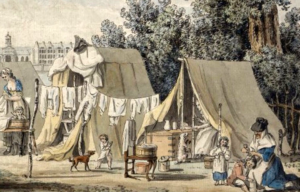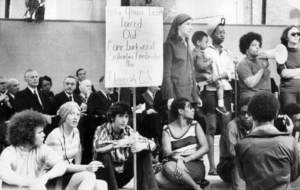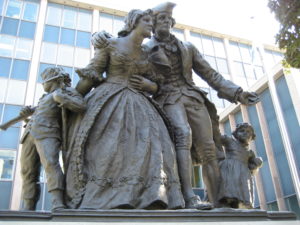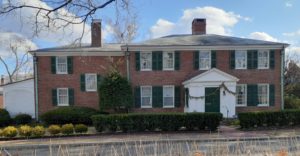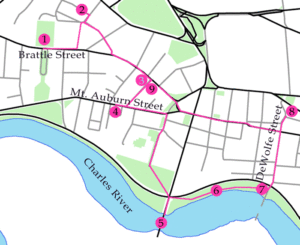Edith Lesley: Pioneering Educational Leader
By Jan Devereux
This blog post is a result of our “How Have Women Shaped Cambridge?” call for submissions as we celebrate our 2020 theme, “Who Are Cambridge Women?”
Edith Lesley (1872-1953) left a mark on Cambridge in founding, in 1909, the school that over the past 111 years has grown into Lesley University.
The daughter of a shoemaker, Edith was born in Panama City, raised in Bangor, Maine, and moved to Boston with her family in the early 1890s. As a young woman, she trained as a kindergarten teacher in Boston with Anne L. Page, a disciple of Friedlich Froebel, the German educator who invented the concept of kindergarten. At the time, the notion of formal preschool education outside the home was a new progressive practice, and Lesley saw its potential to benefit young learners and their mothers as well as to provide careers for women.
After a few years in Boston the Lesley family resettled in Cambridge and ran a boarding house at 29 Everett Street, while Edith and her younger sister Olive taught kindergarten at Cambridge’s Riverside School and later at the Houghton School. From 1904 to 1908, Edith studied philosophy as a “special student” at Radcliffe before starting her own eponymous school to train teachers in early childhood education. Initially, classes were held at 36 Concord Avenue, within the Cambridge School for Girls. She continued to teach in the Cambridge public schools during The Lesley Normal School’s early years.
Edith married engineer Merl Ruskin Wolford in 1912, and left her kindergarten job to devote herself to running her own school. Three years later, the couple acquired the house that Edith’s family had rented at 29 Everett Street, building an addition that served as the school’s headquarters, and ultimately buying several other houses on Everett and Mellen Streets to create the core of Lesley’s original campus. Today, Edith Lesley’s longtime home at 29 Everett Street houses offices for Lesley’s president and senior administrators, and anchors what is known as the Doble Campus, one of Lesley’s now-three campuses in Cambridge.
The Lesley Normal School became Lesley College in 1944 when it began to offer four-year undergraduate degrees in education to women, building a strong reputation for training teachers and expanding its courses of study to the social sciences and related fields that employed many women in that era. The College began offering graduate degrees in the 1950s, and in 1998 acquired the Art Institute of Boston, renaming it Lesley College of Art + Design, and strengthening its arts programs. In 2000 it became Lesley University, further broadened its degree programs, and began admitting men. The University now enrolls almost 6,400 undergraduate and graduate students along with adult learners in a variety of professional development and continuing education programs.
Edith Lesley’s legacy is visible in the myriad ways the educational institution she founded and led has enriched the Cambridge community, educating generations of teachers, social workers and mental health counselors, many of whom work or consult in Cambridge schools. Her vision of an institution that would educate women in the best practices of early childhood education was prescient, as research has since born out the critical foundation that preschool builds for success in subsequent educational experiences and in socio-emotional child development. In today’s economy, high-quality childcare and preschool have become even more essential to working families, and expanding access to affordable early childhood programs is a priority in Cambridge, where many young families are already burdened with the high cost of housing.

